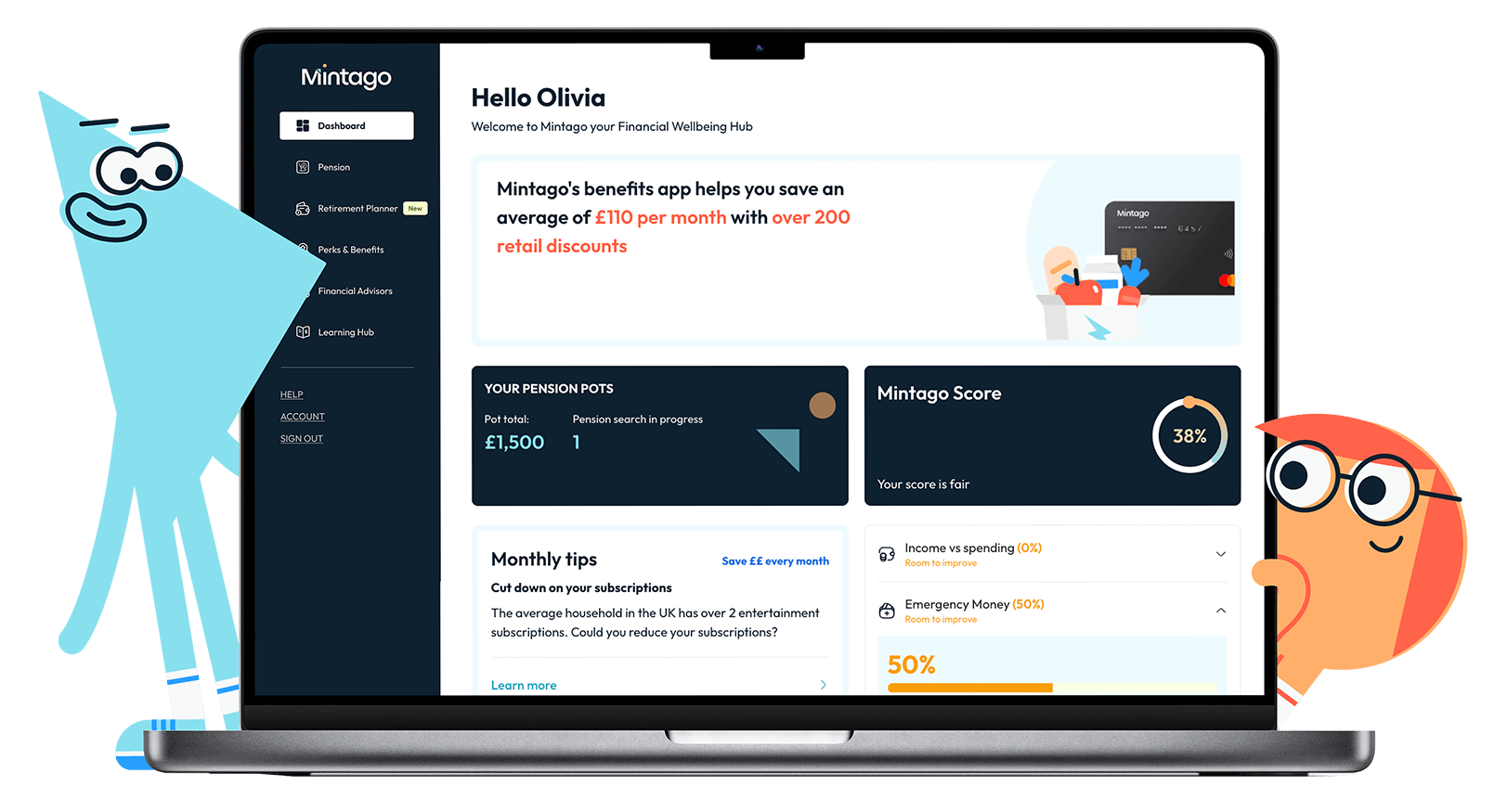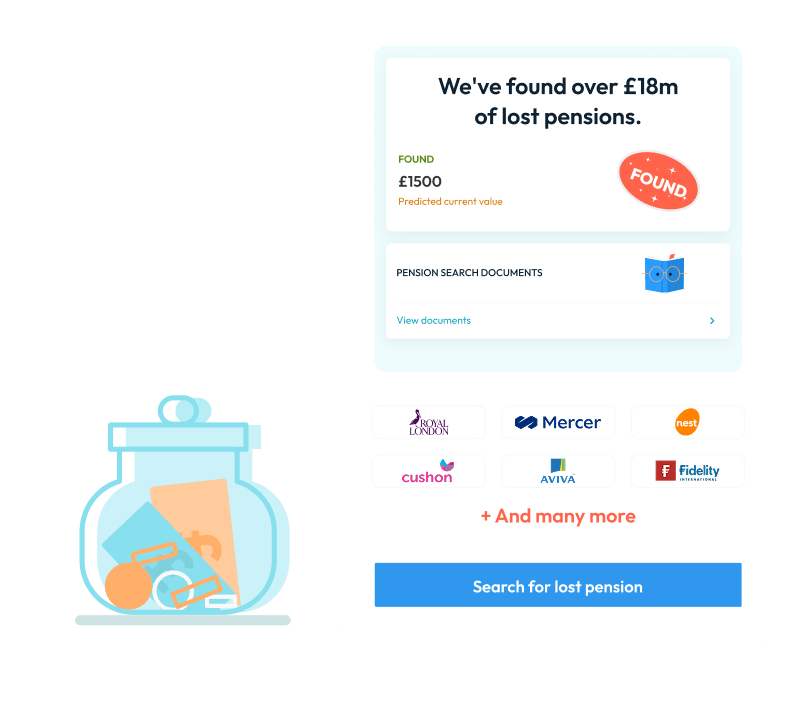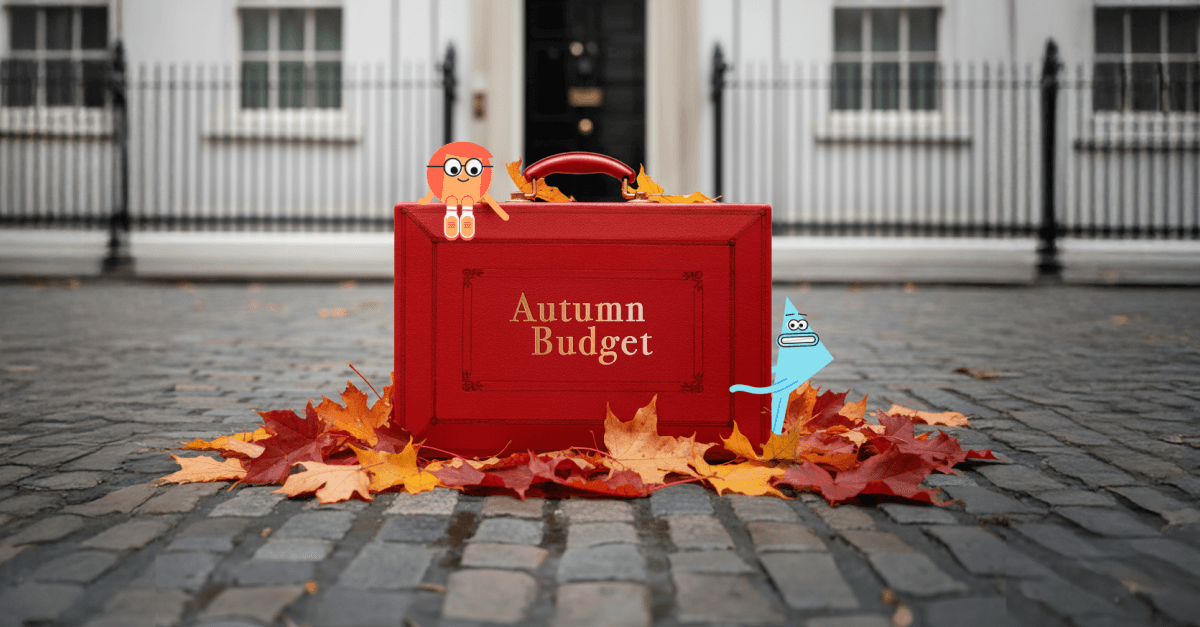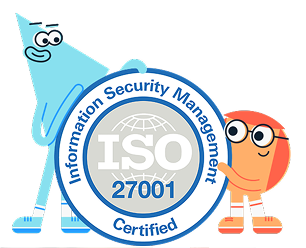Smarter finances for your
employees and your organisation
✔️ Salary sacrifice implementation
✔️ Comprehensive staff benefits
✔️ EAP + Virtual GP
✔️ Unbiased, impartial platform
✔️ Comprehensive solution

✔️ Salary sacrifice implementation
✔️ Comprehensive staff benefits
✔️ EAP + Virtual GP
✔️ Unbiased, impartial platform
✔️ All-in-one solution

Nice
“NICE has really enjoyed working with Mintago to set up our first employee benefits platform. The team at Mintago have been great from the start and made the onboarding process very smooth and easy to understand.”
Sophie Gates | Operations Director
100%
ADOPTION RATE
£10,849
LOST PENSIONS FOUND
 Case Study
Case Study


Ride Tandem
“Employee benefits tend to work best when you don’t have to think about them too much. Our experience with Mintago has been that it just works in the background.”
Simone Posterero | Operations Manager
90%
ADOPTION RATE
£67,361
LOST PENSIONS FOUND
 Case Study
Case Study


AJH
We were already exploring Pension Salary Sacrifice as away of making salaries work harder. The additional benefits Mintago provides made it a no brainer!
Catherine Dean, Head of HR
 Case Study
Case Study


Anmut
“Mintago has been amazing to work with! The team listens to our needs and does not shy away from collecting feedback and proposing things that might work for our business. Additionally, they push us to have catch up sessions aimed at discussing how our team is using Mintago.”
Simone Posterero | Operations Manager
88%
ADOPTION RATE
£775,827
LOST PENSIONS FOUND
 Case Study
Case Study


Reduce your National Insurance bill
Our salary sacrifice benefits can significantly reduce your organisation’s National Insurance contributions. The more employees who sign up, the more you save.

Become a place people love to work
We can help your organisation become a more attractive place to work by stretching pay, improving employee comms and offering essential financial support.
.png?width=1200&length=1200&name=All%20In%20One%20Image%20(1).png)
Work smarter, not harder
Our all-in-one platform means fewer systems to manage. Plus, we make compliance and reporting simple by providing all the guidance and support you need.
Mintago helps your employees…

Stretch employee pay
Mintago includes hundreds of ways to help your people get more for their money. We support your team across all stages of life, so there’s something here for everyone.

Build better pensions
We make it easy for your employees to plan for retirement. Pension Dashboard lets them set goals and manage their contributions, while Pension Search finds lost pots from previous employers.

Support their growth
We can help your employees understand what to do next with their money. Mintago includes free financial advice for your whole team – plus access to learning resources and on-demand masterclasses.
Everything you need, in one place
Salary sacrifice
Pensions
Financial education
Staff benefits
Health and wellbeing
Mintago has more salary sacrifice benefits than any other UK provider.
Childcare

Pension

Travel

Mobile

EcoTech

Cycling

EV Charging

Technology

EV

And more...
Build bigger, better pensions for your employees
Pension Dashboard
We make it easy for your employees to manage their pensions, track their progress and adjust contributions. All in one place.
-1.png)
Pension Search
We’ll find lost pension pots from previous employers – so your employees can choose what to do with them.

Impartial advice
Your employees can request free financial advice about how to invest their pensions. All advice is impartial – we don’t earn any commission.
.png)
Provider review
Not sure if you’ve chosen the best pension provider for your people? Our team of experts will assess your needs and let you know if there’s a better option.

Give your employees the skills to manage and grow their money
Free financial advice
Your employees can request advice from our panel of impartial financial advisers. Most topics are covered – from buying a house, to writing a will.
.png)
Expert masterclasses
A chance to learn more from industry experts. Our masterclasses are available live and on-demand and cover a wide range of financial topics.

Learning library
Employees can pick up financial skills at their own pace with our library of bitesize learning resources.
.png)
Employer guidance
Not sure how to report your benefits to HMRC? Don’t worry, our team is on hand to show you how it’s done.

Help your team do more of the things they love
Retail
Save your employees money online and on the high street with discounts from some of the UK’s biggest brands.

Entertainment
Help your team unwind with great price cinema tickets, concerts and gigs, kids play centres and much more.

Health and fitness
Make it easy for your team to look after themselves with discounts on gym memberships, healthy eating and more.

Plus more…
There’s something here for everyone, with discounts on travel, restaurants, days out and much, much more.

Look after your team’s physical and mental wellbeing
EAP
Our Employee Assistance Programme gives your employees 24/7 access to accredited counsellors who can help them deal with whatever they’re facing.

Virtual GP
Help your employees see a doctor when they need it. Our Virtual GP benefit gives your team a 24/7 helpline, plus video consultations, available 7 days a week.

Life insurance
Add life insurance to your plan to give your people peace of mind. Our policy covers employees up to the age of 69.

Health cash plans
Help your employees cover the cost of healthcare with a health cash plan that lets them claim money back on a range of medical expenses.

Savings Calculator
Discover how both companies and employees can save with Salary Sacrifice
ISO 27001
certified
£10,000
avg. pension found per employee
£40,000,000
lost pensions
found
More to explore
Frequently Asked Questions
Pricing can vary depending on the features you choose and how many employees work for your organisation. You can find out more on pricing page and please don't hesitate to speak to the team to get a specific quote for your team.
We offer four salary sacrifice benefits that can save your organisation money: childcare, pensions, electric vehicles and cycling. They work by reducing your employer National Insurance contributions.
Yes, we speak to HMRC regularly to ensure all our benefits are compliant. We also share guidance with your team to help with reporting.












.png)
